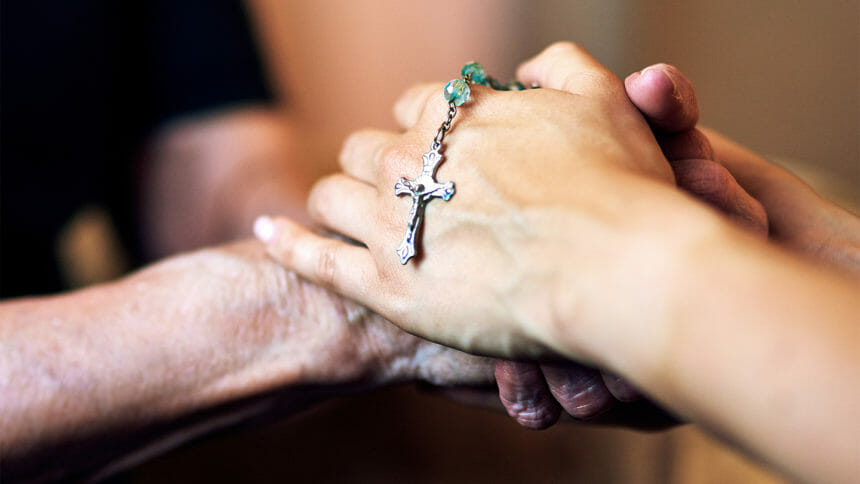
Clinicians should keep their religious beliefs separate from how they deliver care, according to 77% of older adults queried in the University of Michigan’s National Poll on Healthy Aging. Yet many say they see a role for their healthcare providers in helping them come to terms with illness.
Religious or spiritual beliefs were very important to about 85% of the adults polled. But most of those polled said that their beliefs did not affect their own healthcare decisions, investigators reported.
However, “a sizable majority of all older adults, whether or not they say belief is important to them, reported that they’d turn to healthcare workers to help them find deeper meaning in their illness,” said Adam Marks, MD, a hospice and palliative care physician at Michigan Medicine. Furthermore, 78% believe healthcare workers will help them find hope, he said.
In addition, about one-third of those who say their religious or spiritual beliefs are very important to them also said they have talked to a healthcare provider about these beliefs.
No matter a patient’s beliefs, religious affiliation may be important information for clinicians to know, said L.J. Brazier, M.Div., a chaplain at Michigan Medicine’s department of spiritual care. It can help providers ensure that patients are receiving everything from the correct food to visits with the appropriate chaplain when they’re having a health crisis or nearing the end of life, he said.
“For health care providers who regularly care for patients with serious illness, being familiar with religious and spiritual community resources can allow them to better support patients during health challenges,” the researchers wrote in a summary of their findings.
Related articles:
Spirituality predicted improved resident wellbeing during pandemic isolation: study




